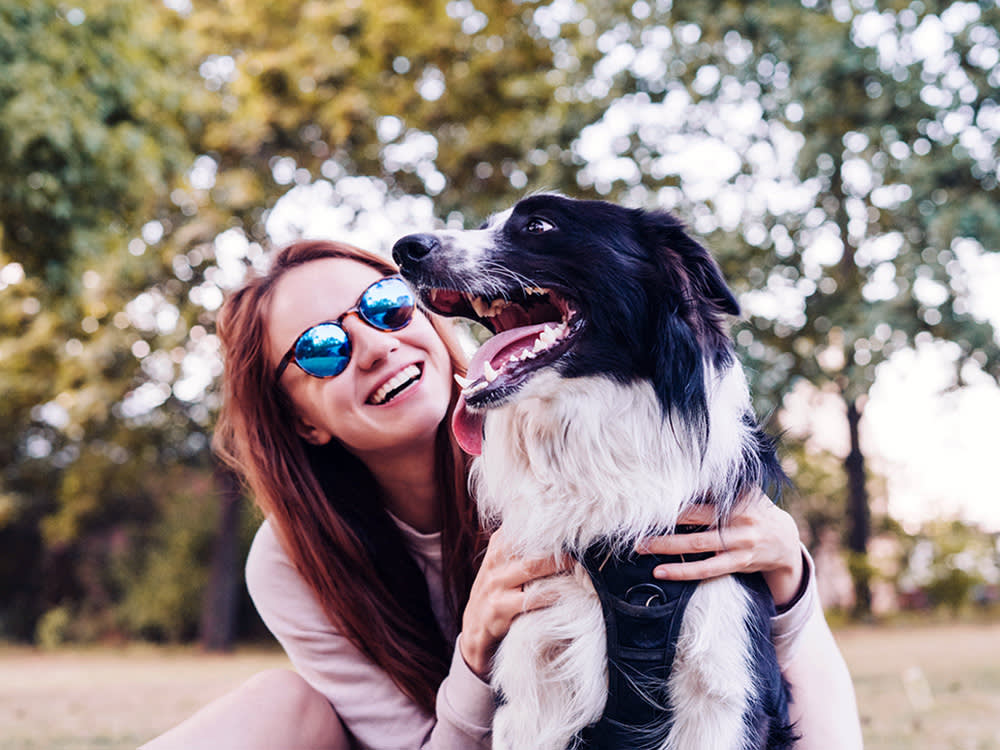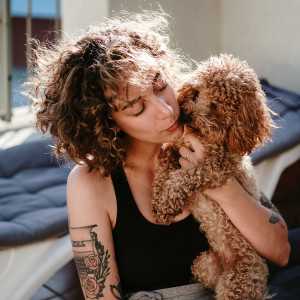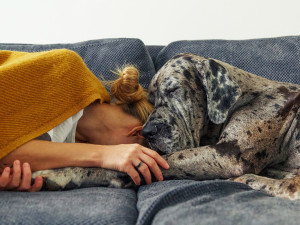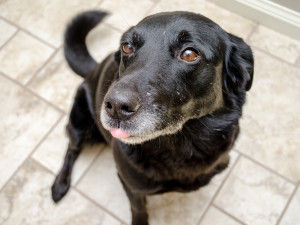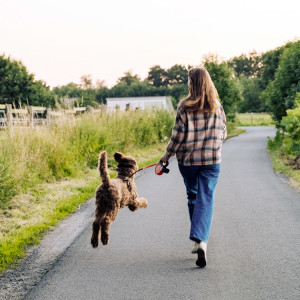Do Dogs Try and Make Us Laugh? The Internet Thinks So – Here’s What Science Says
If you think your pup’s basically James Acaster, science backs you up
If you have a dog – or if you spend hours scrolling through puppy videos – you probably already know that some pups have a knack for comedy. When you meet an extra silly dog who seems to live for the applause, you might wonder if they’re trying to make us laugh on purpose or if they just can’t help but be adorable. It turns out, science has an answer after a TikTok went viralopens in new tab for sharing research that shows dogs do, in fact, try to make humans laugh.
The research: dogs understand human emotions
The TikTok is based on a research paperopens in new tab called Emotional Communication Between Dogs and Humans which was published by Veronika Konok at the Eötvös Loránd University Faculty of Science in Budapest, Hungary in 2014. In it, Konok details many different studies that have shown that dogs understand human emotions and react accordingly (“Um, yeah,” said every dog parent ever).
Get (totally free) deals for food, treats, accessories, tech and way more pet parenting must-haves.
For example, dogs can distinguish between tones of voice. In one study, “they were slower to take a piece of food when commanded to leave it with an ‘angry voice’ compared to a ‘happy voice’.” They are also more likely to choose food or retrieve objects that humans have shown positive emotional expressions toward, as opposed to things humans have shown negative emotional expressions toward. Konok concludes that dogs are very perceptive of human emotional states – a fact that’s pretty obvious to any dog parent whose pup snuggles closer to them during teary movie nights.
Another study, Voice-Sensitive Regions in the Dog and Human Brain Are Revealed by Comparative fMRI by Attila Andics, used an fMRI scanner to show how dogs’ brains respond to human noisesopens in new tab. The study found that one area of the dogs’ brains showed more activity when hearing a positive human sound (such as laughter) than a negative human sound (such as crying).
Your dog is responding to your positivity
The research doesn’t actually prove that dogs intentionally try to make humans laugh (that’s hard to prove without asking them!), but it shows that dogs show a stronger emotional response to positive human sounds than negative human sounds. So, for example, when you’re laughing at something they’re doing, they might react and make you laugh even harder.
And whether they’re doing it on purpose or not, it’s a fact that our pups are making us laugh all day, every day. Dog parents on TikTok are backing the findings up with some seriously adorable anecdotes. “My dog suffocates me with kisses and then tried even harder when I start laughing. It makes so much sense now,” one user commented. Another commenter joked, “I’m raising a bunch of very expensive comedians.”
This trait actually makes dogs really good service animals
Konok writes that research on dogs recognising human emotions explains why they make exceptional therapy and service animals: “Dogs’ ability to develop a complex communication system with humans makes these animals particularly suitable to facilitate social interactions and communication in humans (Cirulli et al., 2011).”
She also notes that “emotions enhance memory. There is considerable evidence that events which induce positive or negative emotions are more easily remembered than those which are emotionally neutral” – which means that your pup’s strongest memories of you might be the ones when you’re laughing. Well, that pure fact just makes us want to... cry, actually. Yep, we’re crying.
